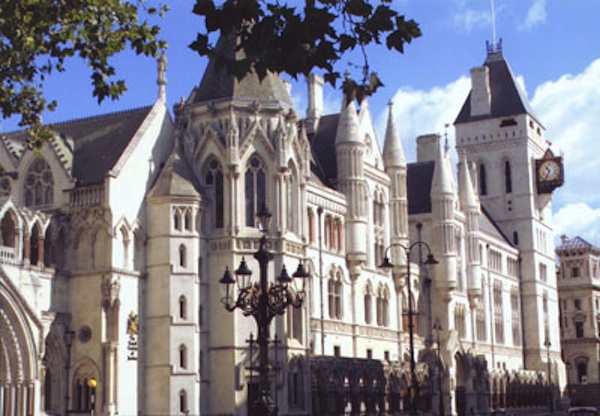The Legal Aid, Sentencing and Punishment of Offenders Bill is this week being debated in the House of Lords, and John Prescott noted on Monday that media companies have been uncharacteristically silent on the effect the bill will have on access to justice for civil litigators (The Legal Aid Bill: why the media silence?).
Part two of the Bill will change the rules on conditional fee arrangements (CFAs). These changes are being sold to the public as an effective way of curtailing compensation-chasing whiplash litigants, but they’ll also have a devastating impact on anyone who has been the victim of media misrepresentation.
Even with the current CFA arrangements, libel cases are primarily the preserve of the wealthy. With no legal aid available for libel claims, people who find themselves defamed in the national press need to have either a huge bank balance or a sympathetic lawyer who is willing to gamble his livelihood on a ‘no win, no fee basis’. Currently, a lawyer acting under a CFA can recover a success fee from the defendant if his claimant wins their case. This is paid in addition to damages and costs of the case, and is generally regarded as a premium for the gamble taken in bringing the case to court.
But even within the safety net of the current CFA rules, the ‘ordinary person’ who finds themselves defamed in the press will struggle to bring their case to court.
In 2011, 15 cases involving libel claims against national newspapers were heard in the High Court. Of these cases, four were brought by MPs or former MPs, two by celebrities/public figures, four by wealthy business men or women and one each by a footballer, musician, author and film producer. The single claim brought by what could be termed as an ordinary member of the public was in a high-profile case which had caused widespread public outrage, and the appellant was represented by a firm of solicitors specialising in defamation cases and offering CFAs. The public sector worker in the case received an apology and substantial damages.
Under the proposed Bill, the losing party will not be liable for success fees and instead the claimant will foot the bill. The effect on claimants who are successful in their claims will be that they will still face a huge invoice. This also means the lawyers’ risk in taking on CFA cases is much greater, as damages are rarely the life-changing sums reported in high profile cases and there is no guarantee of payment from the winning claimant. Effectively, lawyers will become even more selective about the few cases they are willing to take on.
The government’s reasoning for this switch is to ‘give CFA claimants financial interests in controlling the costs incurred on their behalf’. However, claimants have little control over the sums involved and defendants (who in most libel cases are national or international media organisations with leading law firms at their disposal) will often try to claim their own substantial costs early in the case. I discovered the huge sums involved when I brought my own claim against Associated Newspapers, owners of the Daily Mail, in 2004. You can read about my story on www.thejusticegap.com HERE. Unable to find a solicitor willing to take my case on a CFA basis, I brought a claim as a litigant in person and was quickly presented with an application for costs against me of more than £20,000 which I had no means of paying. My own costs at that stage totalled around £1200.
Lord Chancellor Kenneth Clarke and Justice Minister Jonathan Djanogly give further justification for their reforms by stating they will ‘…help businesses and other defendants who have to spend too much time and money dealing with avoidable litigation, actual or threatened. Substantial unnecessary costs will be removed from the system, leading to significant savings to defendants’.
No mention is given to the substantial cost – financial and personal – to claimants who have been stonewalled by the media organisations that have profited from the inaccurate and untrue stories they run about them. My own attempts to correspond with the newspaper to put right the untrue information printed about me, in accordance with pre-action protocol for libel cases, were met with an insistence that the article was accurate. The Mail failed to provide any evidence to support their case despite repeated requests, and I knew no such evidence existed as I had never said the words attributed to me. But rather than engage with me or agree to my request for alternative dispute resolution, the Mail’s managing editor told me the correspondence was at end. This resulted in a 20 month legal battle which ended when the Mail’s claim to have my case thrown out was rejected and they offered to settle. I asked for and was awarded just over £7,000 to cover my costs and loss of self-employed earnings.
My motivation was never to get rich. I approached each stage of the battle day by day with the sole intention of the Mail acknowledging that they had treated me shabbily. I never got the apology, but I reluctantly accepted that I didn’t have the resources, mentally or financially, to proceed to trial. Justice Tugendhat’s order that my claim could proceed gave me a moral victory that I could live with.
In his address to the Leveson enquiry’s opening seminar in October 2011, the Daily Mail’s editor Paul Dacre declared that ‘virtually no newspaper can today afford to fight a court case that could end up costing many millions’. He insisted that the Press Complaints Commission (PCC) is an effective form of self-regulation and vital for ‘helping vulnerable people obtain protection and redress, without compromising freedom of expression’.
Of the 5,804 complaints made to the PCC in 2011, just 20 made it through the commission’s procedures and were upheld; that’s 0.003 percent. The PCC says it resolved a further 597 cases, however this doesn’t necessarily mean the complainant was happy with the outcome. A resolved case can merely mean the newspaper promising to make a note in their files not to do it again. For the ordinary person affected by tabloid lies and distortion, this brings little comfort.
So with less than 1% of PCC complaints upheld, and all but one High Court case brought by those with the significant wealth required to foot the bill, where does that leave the ‘ordinary person’? In extreme cases, like that of the public sector worker, the current conditional fee arrangement at least provides a lifeline. If these reforms are passed, there will be none.





‘Legalease is complicated because it suits lawyers to keep it that way’